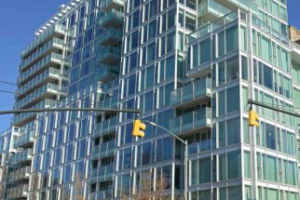Pets that Bite – COVID-19 made it even more complicated for coop, condo and HOA boards.
Pets are fantastic but when they demonstrate the propensity to bite, action has to be taken. If a board and management do not do so and follow up relentlessly, they can end up in protracted lawsuits when people are injured. This happened to the Element Condominium board on the Upper West Side of Manhattan and its managing agent.
The incident happened back in 2011 when a unit owner and his pit bull mix were in a passenger elevator in the condominium and another unit owner was attacked by the dog. The dog appeared friendly but then attacked tearing off pieces of the person’s nose and lip. The board and management jumped into action, notifying the dog owner that he should muzzle the dog during their investigation of the incident. The board and management also notified all residents of the incident, the muzzle request and that the dog can only be transported in the service elevator.
Despite this notice, the dog owner ignored it, did not muzzle the dog in the common areas of the condo and used the passenger elevator with the unmuzzled dog.
A lawsuit started in 2014 and one of the claims against the condo and management was that they breached the condo’s rule about pets by allowing the dog in the building both before and after the attack.
The rule provided that:
No pets other than dogs, caged birds, cats and fish (which do not cause a nuisance, health hazard or unsanitary condition), shall be permitted, kept or harbored in a Residential Unit without the same in each instance having been expressly permitted in writing by the Residential Board or the managing agent of the Residential section . . . . In no event shall any Unit Owner maintain more than two (2) pets in a Unit without the consent of the Residential Board nor shall any bird, reptile, or animal be permitted in any public elevator in the Residential Section, other than the elevators designated by the Residential Board or the managing agent of the Residential Section for that purpose, or in any public portions of the Residential Section, unless carried or on a leash.
The condo and management tried to get out of the case, but the Court refused to dismiss against them with respect to breach of the rule after the dog bite incident. The Court reasoned that prior to the incident there was no evidence that the board or management knew that the dog was a nuisance or health hazard.
However, once the attack occurred, both were aware that the dog was a nuisance and health hazard under the rule and thus, there was a question of fact regarding whether the board and management breached the rule by not doing more than providing a notice after the attack.
This begs the question, what’s a board and management to do about a dangerous pet in the building. Now that residents and their pets are essentially restricted to their homes because of Coronavirus and there are substantially more people and pets in building, taking the elevators together for outside walks, issues with aggressive pets are inevitably going to happen.
Once the board or management receive a complaint, an investigation should definitely be opened as soon as possible to determine whether there is an issue and the investigation should be documented.
The steps taken by the Element Condominium board and management seem reasonable under the circumstances there. After the dog bite, however, it is concerning that the Court did not believe a notice to the pet owner to muzzle and use the service elevator, and notice to residents so that they are aware of the potentially dangerous dog, may not have been enough.
If the pet owner had complied with the restrictions, perhaps the Court would have dismissed the rule violation claims against the condo board and management. When there was non compliance, the board and management could have brought an injunction action against the non-compliant owner. Now that the Court’s are essentially closed except for essential business, will an injunction action against the pet owner get attention in Court? Fines for rule violations also may be appropriate and have had a deterrent effect. The board’s and management’s approach should be to act promptly and be as effective as reasonably possible in trying to protect residents from the dangerous pet.
The Elements Condo case just settled this month, 9 years after the dog bite. Community associations and their residents have enough challenges with COVID-19, and hopefully aggressive pets won’t be on your next meeting agenda. If it is, you’ll now know how to best protect your association and its residents.
Read the Element’s Condo court decision here.




